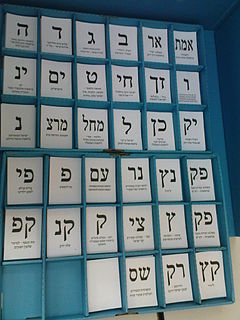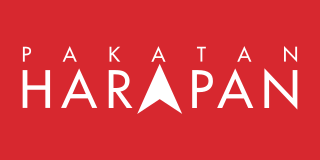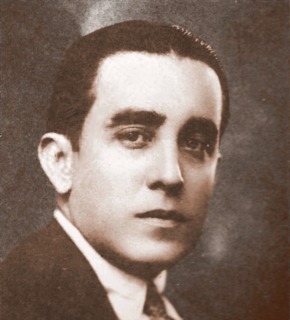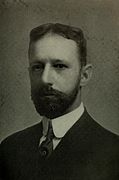A coalition government is a cabinet of a parliamentary government in which multiple political parties cooperate, reducing the dominance of any one party within that "coalition". The usual reason for this arrangement is that no party on its own can achieve a majority in the parliament. A coalition government might also be created in a time of national difficulty or crisis to give a government the high degree of perceived political legitimacy or collective identity it desires while also playing a role in diminishing internal political strife. In such times, parties have formed all-party coalitions. If a coalition collapses, a confidence vote is held or a motion of no confidence is taken.

The Free Democratic Party is a liberal and classical liberal political party in Germany. The FDP is led by Christian Lindner.
The National Party of Australia is an Australian political party. Traditionally representing graziers, farmers, and rural voters generally, it began as the Australian Country Party in 1920 at a federal level. It would later briefly adopt the name National Country Party in 1975, before adopting its current name in 1982.
Democratic Left Alliance is a social-democratic political party in Poland. It was formed in 1991 as an electoral alliance of centre-left parties, and became a single party on 15 April 1999. The SLD has no representation in the Sejm or Senate following the 2015 parliamentary election. The party is a member of the Party of European Socialists and Progressive Alliance.
The politics of Norway take place in the framework of a parliamentary representative democratic constitutional monarchy. Executive power is exercised by the Council of State, the cabinet, led by the Prime Minister of Norway. Legislative power is vested in both the government and the legislature, the Storting, elected within a multi-party system. The judiciary is independent of the executive branch and the legislature.

The Christian Democratic Union of Germany is a Christian democratic and liberal-conservative political party in Germany. It is the major catch-all party of the centre-right in German politics. The CDU forms the CDU/CSU grouping, also known as the Union, in the Bundestag with its Bavarian counterpart the Christian Social Union in Bavaria (CSU). The party is widely considered an effective successor of the Centre Party, although it has a broader base.

The Austrian People's Party is a Christian-democratic and conservative political party in Austria. A successor to the Christian Social Party of the late 19th and early 20th centuries, it was founded immediately following the reestablishment of the Republic of Austria in 1945 and since then has been one of the two largest Austrian political parties with the Social Democratic Party of Austria (SPÖ). In federal governance, the ÖVP has spent most of the postwar era in a grand coalition with the SPÖ. Most recently, it has been junior partner in a coalition government with the SPÖ since 2007. However, the ÖVP won the 2017 election, having the greatest number of seats and formed a coalition with the far-right Freedom Party of Austria (FPÖ). Its chairman Sebastian Kurz is the youngest Chancellor in Austrian history.
A minority government, or minority cabinet or minority parliament, is a cabinet formed in a parliamentary system when a political party or coalition of parties does not have a majority of overall seats in the parliament. It is sworn into office, with or without the formal support of other parties, to enable a government to be formed. Under such a government, legislation can only be passed with the support of enough other members of the legislature to provide a majority, encouraging multi-partisanship. In bicameral parliaments, the term relates to the situation in chamber whose confidence is considered most crucial to the continuance in office of the government.

The 1918 United Kingdom general election was called immediately after the Armistice with Germany which ended the First World War, and was held on Saturday 14 December 1918. The governing coalition, under Prime Minister David Lloyd George, sent letters of endorsement to candidates who supported the coalition government. These were nicknamed "Coalition Coupons", and led to the election being known as the "coupon election". The result was a massive landslide in favour of the coalition, comprising primarily the Conservatives and Coalition Liberals, with massive losses for Liberals who were not endorsed. Nearly all the Liberal M.P.s without coupons were defeated, although party leader H.H. Asquith managed to return to Parliament in a by-election.
A hung parliament is a term used in legislatures under the Westminster system to describe a situation in which no particular political party or pre-existing coalition has an absolute majority of legislators in a parliament or other legislature. This situation is also known, albeit less commonly, as a balanced parliament, or as a legislature under no overall control, and can result in a minority government. The term is not relevant in multi-party systems where it is rare for a single party to hold a majority.
A political organization is any organization that involves itself in the political process, including political parties, non-governmental organizations, advocacy groups and special interest groups. Political organizations are those engaged in political activities aimed at achieving clearly-defined political goals, which typically benefit the interests of their members.
The Coalition is an alliance of centre-right political parties that forms one of the two major groupings in Australian federal politics. Its main opponent is the Australian Labor Party (ALP), and the two forces are often regarded as operating in a two-party system. The Coalition has been in government since the 2013 federal election. The party is currently led by Scott Morrison as Prime Minister of Australia since August 2018.
Regular elections in Albania are mandated by the Constitution and legislation enacted by Parliament. The Parliament (Kuvendi) has 140 members elected for four-year terms. The electoral system is closed list proportional representation. There are 12 multi-member constituencies corresponding to the country's 12 administrative regions. Within any constituency, parties must meet a threshold of 3 percent of votes, and pre-election coalitions must meet a threshold of 5 percent of votes.

Elections to the United States House of Representatives in 1916 were held for members of the 65th Congress, coinciding with the re-election of President Woodrow Wilson.

Elections in Israel are based on nationwide proportional representation. The electoral threshold is currently set at 3.25%, with the number of seats a party receives in the Knesset being proportional to the number of votes it receives. The Knesset is elected for a four-year term, although most governments have not served a full term and early elections are a frequent occurrence. Israel has a multi-party system based on coalition governments as no party has ever won a majority of seats in a national election, although the Alignment briefly held a majority following its formation by an alliance of several different parties prior to the 1969 elections. The legal voting age for Israeli citizens is 18. Elections are overseen by the Central Elections Committee and are held according to the Knesset Elections Law.

General elections were held in India between 5 September and 3 October 1999, a few months after the Kargil War. For the first time, a united front of parties managed to win a majority and form a government that lasted a full term of five years, thus ending a period of political instability at the national level that had been characterised by three general elections held in as many years.
The following table indicates the party of elected officials in Massachusetts:

Local elections will be held in Meycauayan City, Bulacan on May 10, 2010 within the Philippine general election. The voters will elect for the elective local posts in the city: the mayor, vice mayor, and ten councilors.

The Alliance of Hope is a political coalition in Malaysia. It is a successor to Pakatan Rakyat. It was established in 2015 as an opposition to the former-ruling Barisan Nasional. It is the largest bloc in the Dewan Rakyat and is the current ruling party of Malaysia. The coalition is allied with the Sabah Heritage Party (WARISAN) and the United Pasokmomogun Kadazandusun Murut Organisation (UPKO) in the state of Sabah. At the state level, the coalition is the largest party in 8 of 13 state legislative assemblies and forms the government in the states of Kedah, Penang, Perak, Selangor, Negeri Sembilan, Malacca, Johor and Sabah. Pakatan Harapan also form a government with two-thirds majority in the states of Penang, Selangor and Johor.













